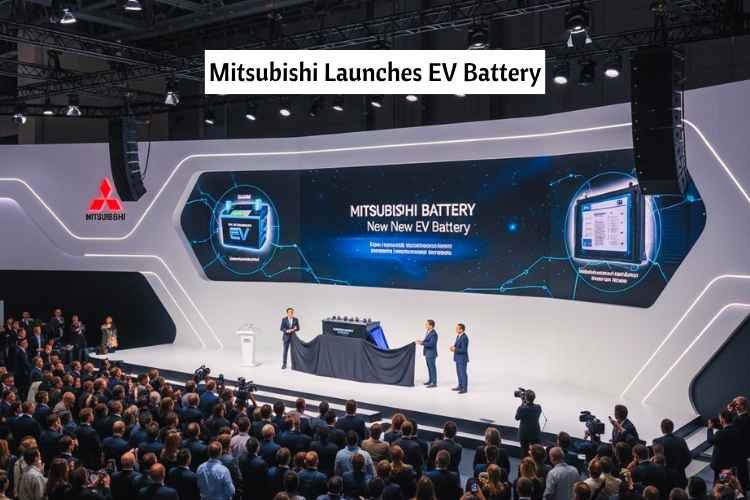Mitsubishi Launches EV Battery: Come September 2025, Tokyo’s streets will host a cutting-edge EV initiative: more than 150 commercial EVs—from Mitsubishi Fuso’s eCanter trucks to Mitsubishi Motors’ compact Minicab EVs—for daily delivery, all benefiting from ultra-fast battery swaps. No more waiting by the charger!

Table of Contents
Mitsubishi Launches EV Battery: Why Swapping Beats Traditional Charging
Fast charging remains time-consuming and grid-stressful. Battery swapping slashes downtime—completed in just around five minutes—without drivers ever having to step out of their vehicles. It’s a seamless fit for bustling delivery fleets and tight urban schedules.
Mitsubishi Launches EV Battery Swap Network
| Section | Highlights |
|---|---|
| Introduction | Tokyo’s new EV battery-swapping network is rolling out in September 2025—a game-changer for commercial fleets. |
| Why It Matters | Fully automated battery swaps in ~5 minutes—drivers stay seated; supported by the Kyoto pilot in 2024. |
| Key Partners | Mitsubishi Fuso (eCanter trucks), Mitsubishi Motors (Minicab EV), Ample (swap tech), Yamato (logistics), Tokyo Gov’t. |
| Vehicles | 150+ vehicles: eCanter light-duty trucks, Minicab EV kei-class delivery vans. |
| Stations | 14 modular, automated Ample swap stations; compact, deployable in under a week. |
| Operations | Cuts GHG footprint—transport made up ~19% of Japan’s CO₂ in 2022; supports the goal of 46% reduction by 2030. |
| Environmental Impact | Cuts GHG footprint—transport made up ~19% of Japan’s CO₂ in 2022; supports the goal of a 46% reduction by 2030. |
| Grid Integration | Swap stations may someday store/discharge renewables, balancing peaks and aiding resilience. |
| Looking Ahead | Opens to other fleets/OEMs; potential scaling beyond Tokyo; a model for global urban EV rollout. |
Conclusion
Mitsubishi’s Tokyo EV battery-swap network is a forward-thinking response to the twin challenges of EV charging time and grid management. By combining proven technology, strong partnerships, and environmental ambition, this initiative offers a compelling blueprint for electrifying urban logistics. If successful, it could fundamentally transform how cities manage commercial fleets, making clean, efficient, and uninterrupted delivery services the new norm.
Bhakti Rawat is a Founder & Writer of InsureMyCar360.com. This site Provides You with Information Related To the Best Auto Insurance Updates & comparisons. 🔗
